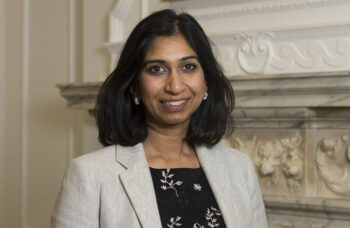We are developing the social individualist meta-context for the future. From the very serious to the extremely frivolous... lets see what is on the mind of the Samizdata people.
Samizdata, derived from Samizdat /n. - a system of clandestine publication of banned literature in the USSR [Russ.,= self-publishing house]
|
Soon after Hamas attacked Israel, Jeremy Corbyn made a speech. Kyle Orton noticed something odd about it:
“young people who died in the Negev desert”
“young people who’ve been killed by Israeli forces in Gaza”
Telling how he thinks.
So sad about those young people who “died in the desert”. What happened, did they forget water bottles and sun cream? Tut, tut, young people are so imprudent.
All languages have their irregularities. For instance, in Modern Journalese Jews can kill, where “to kill” is a transitive verb, but they die intransitively. Their allotted span of years happens to come to an end that day. The nearest the grammar of Journalese gets to expressing the idea that someone might have – uh, whatchamacallit, done that thing to a Jew so that they end up dying – is to tentatively mention an event that preceded it:
“Jewish man in California dies after confrontation during Israel-Hamas War protests” – Time magazine.
But remember, folks, correlation is not causation. Though in this case, it was. The Community Notes to that tweet by Time magazine state “The medical examiner ruled Paul Kessler’s death a homicide.” He was – I’m speaking normal English, not Journalese, so this sentence is grammatical despite Mr Kessler having been a Jew – killed. The definitional question that remains open is whether his killing was murder.
That question is not open when it comes to the young Israelis who were murdered by Hamas at a music festival in the Negev Desert.
Edit: In the comments, AFT points out that the distinction between transitive and intransitive verbs is not the same as the distinction between active and passive voice. An example of the latter distinction would be “The Israelis killed the Palestinians” versus “The Israelis were killed by the Palestinians”. I have seen enough evidence of the journalistic preference for headlines in which Israelis actively, dynamically, kill specified people versus those in which Israelis are killed by unspecified people, and vice versa for Palestinians, that I think I can leave the double meaning of “passive” in my post title unchanged. If you have seen a particularly egregious example of either distinction, add it to the comments.
This is the hierarchy:
1. A killed B.
2. B was killed by A.
3. B was killed. (No killer specified.)
4. B died after some event. (Whether or not their death was a result of that event is left unspecified.)
5. B died at a given location or time, such as “in the Negev desert”, from which the reader who keeps up with the news might be able to deduce that the death was not natural.
A related strategy for avoiding naming murderers from a protected group is to blame it all on the instrument. This might be called the “killer car” strategy, as perfected by the Washington Post’s infamous reference to “the Waukesha tragedy caused by a SUV”.
At the time, there were many eminent leaders in the West — politicians, scholars, journalists, and other experts — who insisted that the terrorists were motivated by reasons other than the ones they and their leader Osama Bin Laden had articulated so clearly. So Islam had an alibi.
This excuse-making was not only condescending towards Muslims. It also gave many Westerners a chance to retreat into denial. Blaming the errors of US foreign policy was easier than contemplating the possibility that we were confronted with a religious war. We have seen a similar tendency in the past five weeks, as millions of people sympathetic to the plight of Gazans seek to rationalise the October 7 terrorist attacks as a justified response to the policies of the Israeli government.
– Ayaan Hirsi Ali
Hamas likes nothing better than an Israeli strike that kills civilians. That is why it has reportedly been preventing its people from fleeing the war zone, sometimes by force. They seemingly want Palestinian casualties to pile high, in full view of the world’s media. The BBC and others beam footage of the horror of war around the world to people who have lost touch with the reality of armed conflict. Hamas want people in the West to take to the streets in outrage, forgetting that even a just and defensive war is hell. They know this will help them win.
– Jake Wallis Simons
This is pretty grim stuff by the splendid Nancy Rommelmann. Read it anyway.
“There is an ironically neocolonial feel to the cultural elites’ absolution of Hamas. It is their indoctrination into the politics of identity that leads them to view Israel as the culpable adult in this relationship and the Palestinians as blameless children. Critical-race-theory narratives about white privilege and brown victimhood have led to a situation where not only are whites demonised as powerful and destructive but also non-white people are patronised to an obscene degree as non-powerful and pathetic. This hollow, pat explanation for every political event has now been cut-and-pasted on to the Middle East (despite the fact that Israel is not a ‘white’ country). The end result? Both Israelis and Palestinians are denuded of their humanity, the former damned as the conscious authors of all ills, the latter reduced to the moral infants of world affairs, whom ‘nobody should blame’ even ‘for the things we do’, in Hamad’s words. The anti-Israel elites take a far more racially paternalistic view of Palestinians than Israel does.”
– The relentlessly quotable Brendan O’Neill, at Spiked.
Another crushingly good paragraph:
“There is a serious danger in the neo-racist absolution of Hamas. It serves as a green light to further terror. For if you are never held to account for what you do, you can do anything you like. Hamas now knows, from the global fallout from its pogrom, that it will always be absolved. That it enjoys a kind of moral impunity among the opinion-formers of the West. That its mass slaughter will be contextualised, explained, forgiven. That even its use of civilian buildings and civilian vehicles to store and transport the machinery of its war crimes will not bother the consciences of those who pose as pro-Palestinian. Our elites have done something even worse than blame Israelis for their own deaths – they have signalled to Hamas that if it were to do the same again, there would be no moral consequences. Its blamelessness would remain intact. The failure of our intellectual elites to condemn the Hamas pogrom is an implicit approval of future pogroms.”
Read the whole thing, as the saying goes.
By the way, the expression “intellectual elite” deserves to be covered in scare quotes. “Elite” implies quality, but I see little evidence of it.
“Netanyahu quits over withdrawal from Gaza”. Having got your attention, I will now admit that the Guardian story by Conal Urquhart to which I just linked dates from 8 August 2005. Despite the news of Netanyahu having quit being eighteen years out of date, it is worth your time to read. It will give you a sense of why, despite his many failings, Israelis might be willing to cut their current prime minister some slack:
Israel’s finance minister, Binyamin Netanyahu, resigned from the government yesterday, claiming its plan to withdraw from settlements in the occupied territories would allow the creation of a base for “Islamic terrorism”.
In what is widely seen as a prelude to a challenge to the leadership of the prime minister, Ariel Sharon, Mr Netanyahu submitted his letter of resignation as the cabinet met to rubber stamp the first phase of the evacuation of settlements in Gaza.
“I am not prepared to be a partner to a move which ignores reality, and proceeds blindly toward turning the Gaza Strip into a base for Islamic terrorism which will threaten the state,” he wrote.
He called it horribly right.
Here is another report from 2005, this time by the BBC, “Israel completes Gaza withdrawal”.
Israeli troops have pulled out of the Gaza Strip more than 38 years after capturing the narrow coastal area.
Tanks and armoured vehicles left under cover of darkness and the last officer shut the Kissufim border at dawn.
Thousands of jubilant Palestinians entered the former Jewish enclaves, and some set an abandoned synagogue ablaze in a settlement near Khan Younis.
Palestinian leader Mahmoud Abbas described the withdrawal as an historic and joyful day for his people.
In 2005, the Israelis finally did what so many goodhearted, decent, moderate people in their own country and worldwide had long urged them to do. They gave up land in the hope of peace. They dismantled the Jewish settlements, by force if necessary, but famously left behind high-tech greenhouses full of crops as a gift for the new owners of Gaza. The illusions of the donors who had funded that generous gesture did not last the day. The illusion that giving up the Gaza Strip would be a step towards peace lasted until October 7th, 2023, another historic and joyful day for the Palestinian people.
And now all the goodhearted, decent and moderate people – often, since the careers of newspaper columnists can span decades, literally the same people – are once again calling for Israel to be reasonable and call a ceasefire.
Until the morning of October 7th, the Israelis thought they had a ceasefire.
Some propositions:
1. Freedom is a good thing. It is good in itself and it leads to good outcomes.
2. Freedom includes “free movement”.
3. Free movement is a bad thing. It leads to bad outcomes.
I can imagine some of the responses to this.
Freedom of movement is a success.
Really?
 Anti-Jewish sit-in at Liverpool Street Station. Still think it’s a success? I’d love to know what you would regard as failure.
Freedom of movement worked in the US in the 19th Century.
Yes, but not anywhere else. And certainly not here, and not now.
I know some great immigrants (and their descendants).
And so do I.
 I’d go to war with her.  …and her. The issue is not with those who come in small numbers. Or the ones who marry in. It’s with the ones who arrive en masse, live separately and learn to despise the natives.
There are problems but these would be solved with more freedom. If we abolished discrimination laws, hate speech laws etc things would be better. If we abolished planning (US=zoning) laws, the NHS and state education a lot of the pressures that immigration causes would be eased.
I am not sure that abolishing hate laws etc is even possible. People who find themselves mocked for their immutable characteristics are going to try to do something about it. Abolishing planning etc would be a good thing but that would do nothing to reduce the problems caused by mass migration. By making migration even more attractive it might even make them worse.
If you ditch freedom of movement where do you stop? freedom of speech, property rights?
That is the bit that troubles me the most. I want to believe that libertarianism has universal application. But what if it doesn’t? Here is an idea. Matters concerning the tribe are off-limits. Who is a member of the tribe? Where shall the tribe live? How shall the tribe defend itself? are simply outside the realm of libertarianism.
Update 5/11/23. When commenters started to mention the welfare state I had something of an “Oh drat!” moment. I’d simply forgotten to mention it. And it is a plausible explanation for both mass migration and its failure.
So, how do we assess the claim? We need to find examples of unsuccessful mass migration in the absence of a welfare state (or similar). This is not an easy thing to do. Welfare states and transport becoming affordable to even the world’s poorest came about at about the same time. There are a couple of counter-examples. Irish immigration to Belfast in the 19th Century for example. There were no Irishmen in Belfast before about 1800. There was no welfare state. There was lots of immigration to the shipyards and other industries. And by 1858 (if memory serves) there was lots of trouble. Another example which I can’t find was in a comment left here maybe 15 years ago. The commenter pointed out that Singapore had no welfare state, lots of immigration and ethnic tensions.
It is unlikely to be one of those subjects that ought to grab more than fleeting attention, but being a man of the media and with a liking for satire, wit and a good investigative story, like many of my fellow Gen-Xers, I used to read Private Eye. The magazine, founded in the “Satire Boom” period of the 1960s (this is ancient history today), has achieved a few notable scalps over the years. These days, in my view, it is increasingly rather conventional in its hatreds and targets.
And its recent front page around the Israel/Hamas conflict seems all of a piece with this mindset.
The video embedded in this tweet from the Middle East Media Research Institute (MEMRI) shows Ghazi Hamad of the Hamas Political Bureau speaking on LBC Television, a Lebanese TV channel, on October 24th 2023. What follows is my transcription of the first minute of this video clip. I often do this, transcribe what was said on video into writing, to make it easier for people to search for and cite the relevant words later.
*
Ghazi Hamad: “Israel is a country that has no place on our land. We must remove that country because it constitutes a security, military, and political catastrophe to the Arab and Islamic nation and must be finished.”
“We are not ashamed to say this with full force.”
“We must teach Israel a lesson and we will do this again and again.”
“The Al-Aqsa Flood is just the first time, and there will be a second, a third, a fourth, because we have the determination, the resolve, and the capabilities to fight.”
Interviewer: “Will we have to pay a price?”
Ghazi Hamad: “Yes, and we are ready to pay it. We are called a nation of martyrs, and we are proud to sacrifice martyrs.”
“We did not want to harm civilians, but there were complications on the ground, and there was a party in the area with (civilian) population. It was a large area, across 40 kilometres… The occupation must come to an end.”
Interviewer: “Occupation where? In the Gaza Strip?”
Ghazi Hamad: “No, I am talking about all the Palestinian lands.”
Interviewer: “Does that mean the annihilation of Israel?”
Ghazi Hamad: “Yes, of course.”
“The kinds of people who are willing to justify, minimize, or deny the slaughter of millions by the likes of Stalin and Mao are unlikely to blanch at Hamas’ much smaller-scale atrocities. If you are willing to embrace the Great Leap Forward, Stalin’s purges, or Lenin’s Red Terror, there is probably no limit to what you will accept, so long as you think it is moving the world in the right direction.”
– Ilya Somin, in an article that goes into the details of why so many on the Left have adopted a version of the oldest hatred.
Dr Wahid Asif Shaida has worked as an NHS doctor for a practice in Harrow for more than twenty years. He is described as having a senior role at the surgery as a mentor and trainer for recently-qualified doctors.
Remember the Hizb ut-Tahrir member who led the chant for jihad the other day?
Same guy.
London jihad demo leader is NHS doctor: Islamic extremist’s double life as a suburban GP is exposed
The firebrand leader of an extremist Islamic group that called for ‘jihad’ at an anti-Israel protest works as an NHS GP under a different name, The Mail on Sunday can reveal.
As head of Hizb ut-Tahrir in the UK, Abdul Wahid celebrated the barbaric Hamas terror attacks that slaughtered 1,400 Jewish men, women and children earlier this month as a ‘very welcome punch on the nose’ to Israel.
But he has also spent more than 20 years practising as a family doctor under his real name, Dr Wahid Asif Shaida.
|
Who Are We? The Samizdata people are a bunch of sinister and heavily armed globalist illuminati who seek to infect the entire world with the values of personal liberty and several property. Amongst our many crimes is a sense of humour and the intermittent use of British spelling.
We are also a varied group made up of social individualists, classical liberals, whigs, libertarians, extropians, futurists, ‘Porcupines’, Karl Popper fetishists, recovering neo-conservatives, crazed Ayn Rand worshipers, over-caffeinated Virginia Postrel devotees, witty Frédéric Bastiat wannabes, cypherpunks, minarchists, kritarchists and wild-eyed anarcho-capitalists from Britain, North America, Australia and Europe.
|






